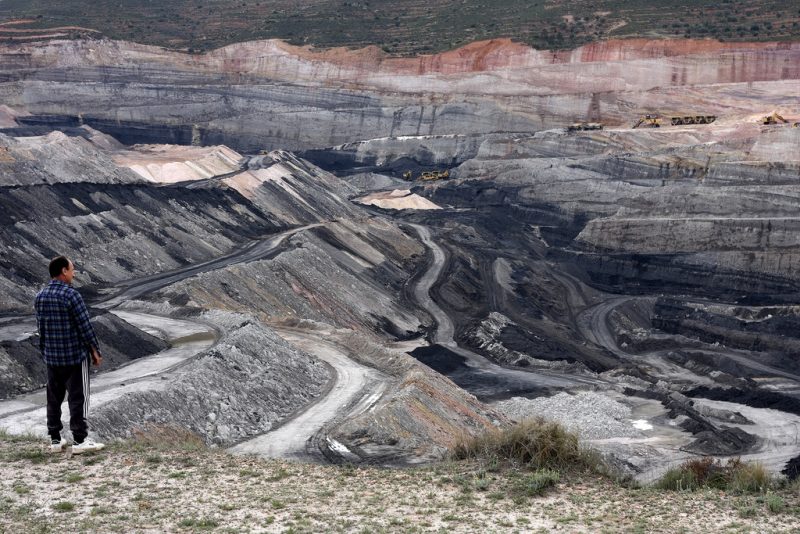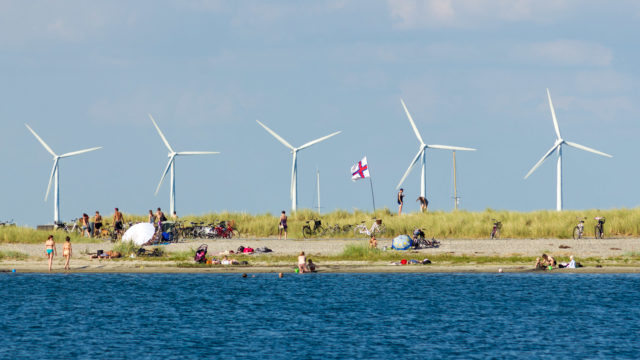
With the UN climate talks entering their second week amidst headlines of division and waning ambition, we reached out to our global dialogue partners for their take on the Paris Agreement, development, decarbonisation and the 1.5ºC goal.
Caribbean
“The Caribbean needs much stronger action from the global community on climate change, including addressing loss and damage. We are already facing the economic consequences of stronger hurricanes, with damages from one hurricane sometimes costing more than a country’s entire GDP. This is much more than an environmental issue for us - Caribbean stakeholders have been emphasising that resilience needs to be at the front and centre of our economic development approaches.
"One strategy is through conserving and restoring natural ecosystems which help to protect our coastlines and watersheds. For this to happen, natural capital needs to be valued and included in our economic decision-making. Poor vulnerable communities are suffering and CANARI has been helping local community small and micro enterprises to assess how climate change will impact them and ways that they can ‘climate proof’. But there’s only so much we can do to build our resilience, and staying within the 1.5ºC target is absolutely critical to give Caribbean islands a fighting chance.”
- Nicole Leotaud, Executive Director, Caribbean Natural Resources Institute (CANARI)
India
"The most important aspect that we are looking from COP 24 is on translating the ambition of climate change action into much deeper realities across all countries. We look forward to action on operationalizing commitments, especially on technical and financial supports to developing and Least Developed Countries and Small Island Developing States for adaptation, loss and damage and mitigation actions. We hope for a greater voice of the vulnerable and developing country representatives, women’s and indigenous groups in the discussions and their outcomes.
"Inclusive green pathways of development and building resilience to the inevitable outcomes of warming are of critical importance to a country like India. We are hopeful that discussions at Katowice result in emergence of partnerships that invest in solutions relevant to real people on the ground, such as small holder farmers, small industry and local governments and bring their interests at the centre. We are worried that negotiations may not take into account the principle of recognising everyone's stake in development in a climate resilient future.
"From our own government, we look forward for commitments towards systems of tracking the country’s targets that involve genuine inclusion of all stakeholders, especially the poor, and true valuation of natural eco-systems in the ‘green growth’ development pathway articulated by India. We expect a proactive approach to incorporate climate action in the core development areas - food, energy, housing, water and waste management especially in local action plans and budgets.
"A much stronger commitment towards equitable and just distribution of the limited carbon space for development across and within countries, and therefore to seeking solutions that ‘leave no one behind’ will be instrumental in the true success of the climate agenda."
- Zeenat Niazi, Vice President, Development Alternatives
Peru
“A Zero Carbon future could still be a reality after COP24. But with important countries such as Brazil and United States stepping back from the Paris Agreement, it is fundamental that countries like Peru, with 60% of its territory still Amazon rainforest, stay as a strong core and deeply committed partner for these issues. We need dramatic changes across all sectors, a guideline of how Paris Agreements should be implemented and the reassurance that finance will be offered to continue with a zero-carbon and a green economy transition.”
- Leslie Forsyth Executive Director of FNI
"The science is clear, the latest IPCC report tells us that our focus should be on 1.5°C rather than 2°C. But emissions continue to increase. The UN Emissions Gap Report 2018 tells us that to avoid going over the 1.5°C threshold, the National Determined Contributions (NDCs), must increase around five times their level of ambition, but many countries are headed in the opposite direction.
"We believe that this COP is critical. Countries must step up their ambition, we have no more time left. This is the year where the accord becomes more realistic, where we begin to have a clear picture of how each country will achieve its reduction commitments, what is needed to finance the change and how to report on progress. This is the year where political will needs to overcome economic inertia.
“We remain optimistic. 184 countries have ratified the agreement and since then 1,500 laws have been created to tackle climate change around the world, this should start to have a positive impact. But time is running out.”
- Pía Zevallos, Liblula Institute for Global Change
South Africa
"The IPCC Special Report on 1.5C will be presented at the UNFCCC. It is critical for the negotiators to understand and internalise the implications of the latest science to set the world on an ambitious and safe pathway. In doing so, the COP24 should firm up the mechanisms and channels through which developing countries will be financially, technologically and humanly supported.
"Yet under the current trajectory, the transition to a low-carbon world is set to make it more unfair and unequal. The transition will only be sustainable if it is just and inclusive. Developing countries as well as the poorest parts of the global population cannot and should not carry the burden of the transition. Difficult trade-offs are nevertheless required to achieve the necessary decarbonisation, notably to phase out fossil fuels. Developing countries and vulnerable fringes of society must be supported to mitigate their GHG emissions, adapt to the impacts of climate change as well as cushion the negative implications of climate policies."
- Gaylor Montmasson-Clair, Trade & Industrial Policy Strategies


